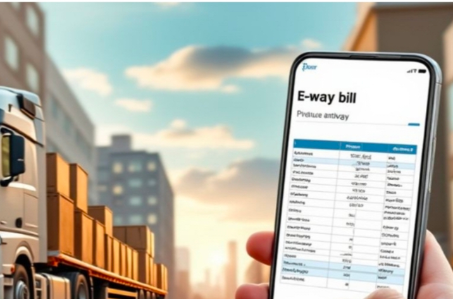Mandatory MFA and E-Way Bill Updates in 2025
Starting April 1, 2025, Multi-Factor Authentication (MFA) will be compulsory for all taxpayers using the updated E-Way Bill and E-Invoice systems, which follows previous mandates and aims to enhance security and compliance in tax processes.
MFA Implementation Timeline
MFA will be introduced in phases from January 1, 2025, it will apply to taxpayers with an annual turnover exceeding ₹20 crore. On February 1, 2025, the requirement will extend to those with turnover above ₹5 crore. Finally, from April 1, 2025, all other taxpayers must comply.
E-Way Bill and E-Invoice Overview
The National Information Centre (NIC) will release updated versions of the E-Way Bill and E-Invoice systems on January 1, 2025. An E-Way Bill is necessary for transporting goods valued over ₹50,000 and is generated via the GST Common Portal. E-invoicing requires uploading invoice details to the Invoice Registration Portal (IRP) to obtain an Invoice Reference Number (IRN). Without a registered invoice, input tax credit (ITC) claims are invalid.
New Rules for E-Way Bills
From January 1, 2025, new regulations for E-Way Bills will be enforced. Bills can only be generated for documents dated within 180 days of the generation date. For instance, documents dated before July 5, 2024, will not be valid for E-Way Bill generation post-January 1, 2025. Additionally, E-Way Bills can be extended for a maximum of 360 days from their original generation date.
Compliance and Tax Evasion Prevention
These updates aim to enhance compliance and reduce tax evasion. Rajat Mohan, Senior Partner at AMRG & Associates, notes that restricting E-Way Bill generation to 180 days and limiting extensions to 360 days will mitigate the risks of backdating or forward-dating transactions. Taxpayers are encouraged to adjust their compliance processes in line with these new regulations.
GKToday Notes:
- Multi-Factor Authentication (MFA): MFA enhances security by requiring multiple verification methods. It becomes mandatory for all taxpayers using E-Way Bill and E-Invoice systems starting April 1, 2025.
- E-Way Bill: An E-Way Bill is essential for transporting goods valued over ₹50,000. It is generated through the GST Common Portal and ensures compliance during transportation.
- Invoice Registration Portal (IRP): The IRP is where invoice details are uploaded for e-invoicing. It issues an Invoice Reference Number (IRN), which is crucial for valid tax claims.
- National Information Centre (NIC): NIC develops and updates digital systems for government services. It will launch enhanced E-Way Bill and E-Invoice systems on January 1, 2025, improving security.
Month: Current Affairs - December, 2024
Category: Government Schemes Current Affairs








